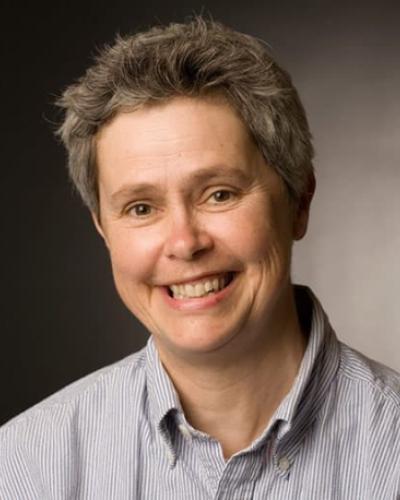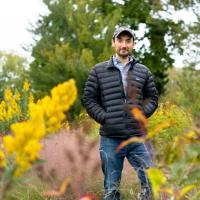|
Greetings from the Department of History,
I am Lawrence Glickman, Stephen and Evalyn Milman Professor in American Studies and Interim Chair of the Department of History while Tamara Loos takes a sabbatical. This fall, many positive things are happening with faculty and students. We welcomed Mayer Juni as Bruce Slovin Assistant Professor to the faculty. We also welcomed four postdoctoral associates: Ruth Lawlor, Justine Modica, Josh Schwartz, and Wenrui Zhao. The last two are serving as Active Learning Initiative postdocs and working with faculty to bring active learning into the history classroom. Justine is the department’s second Klarman Fellow (following Charles Petersen, who is completing his third year in the Klarman program). Dr. Lawlor will join our faculty as an assistant professor in the fall of 2023. As mentioned in our previous newsletter, many of our faculty are away doing research. Kristin Roebuck is doing research for the year in Japan on a Fulbright research grant. Casey Schmitt is on a National Endowment for the Humanities-funded long-term postdoctoral fellowship at the John Carter Brown Library in Providence, Rhode Island, pursuing her research project "The Predatory Sea: Human Trafficking, Colonization, and Trade in the Greater Caribbean, 1530-1690." Jon Parmenter holds a 2022-23 fellowship at the Cornell Society for the Humanities, where the focal theme is “Repair,” a fitting topic for his research on “Cornell University’s origins in Indian Country.”
In other news, we congratulate five of our faculty who recently published books: María Cristina Garcia published "State of Disaster, The Failure of U.S. Migration Policy in an Age of Climate Change" (University of North Carolina Press, 2022), Mostafa Minawi published "Losing Istanbul: Arab-Ottoman Imperialists and the End of Empire" (Stanford University Press, 2022), Aaron Sachs published "Up from the Depths: Herman Melville, Lewis Mumford, and Rediscovery in Dark Times" (Princeton University Press, 2022), and Robert Travers published "Empires of Complaints: Mughal Law and the Making of British India, 1765-1793" (Cambridge University Press, 2022). In addition, Stuart M. Blumin, Emeritus Professor of American History, and Glenn C. Altschuler, Thomas and Dorothy Litwin Professor of American Studies, co-wrote "The Rise and Fall of Protestant Brooklyn, An American Story" (Cornell University Press, 2022).
In addition, four faculty have recently won major awards for their books and articles. Judi Byfield’s book, "The Great Upheaval: Women and Nation in Postwar Nigeria," won the Martin A. Klein Prize in African history of the American Historical Association. Mara Du’s book, "State and Family in China: Filial Piety and Its Reform," was awarded the Biennial Book Prize of the International Society for Chinese Law and History. Tamika Nunley’s book "At the Threshold of Liberty: Women, Slavery, and Shifting Identities in Washington, D.C.," won the Mary Kelley Book Prize of the Society for Historians of the Early American Republic (SHEAR). The Mary Kelley Book Prize honors the best book published on the history of women, gender, or sexuality in the early American republic. Tamika’s book had previously received the Letitia Woods Brown Book Prize from the Association of Black Women Historians, awarded annually to the best book published in the preceding year on the subject of African American women’s history and the 2022 Pauli Murray Prize for best book in Black Intellectual History from the African American Intellectual Historical Society. In addition, Tamika won the inaugural Anne Braden Prize for the best article on Southern women’s history from the Southern History Association in 2022 for “Thrice Condemned: Enslaved Women, Violence, and the Practice of Leniency in Antebellum Courts,” which was published in the Journal of Southern History in Feb 2021. Stephen Vider’s book, "The Queerness of Home: Gender, Sexuality, and the Politics of Domesticity after World War II," received honorable mention for the John Hope Franklin Prize of the American Studies Association.
In other faculty updates, we celebrated Raymond Craib, Marie Underhill Noll Professor of American History, who was one of two recipients of the Provost's Award for Teaching Excellence in Graduate and Professional Degree Programs (see the article accompanying this newsletter).
The students have been very engaged this semester, both at the graduate and undergraduate levels. Our graduate students are busy with their colloquium schedule, and we have added ten new students to the program examining many different world histories (see the article below). The undergraduate students have attended an Open House and two lunches with faculty. Also, as a new initiative, we offered Drop-In Hours: students stopped in and talked one-to-one with a faculty member about the major, our minors, and specific courses. We were also happy to have David Langbart '79 from the National Archives and Records present a second talk, "Conducting Research at the National Archives: Hints for Research Success, Part 2." Graduate and undergraduate students learned much from Langbart, and we appreciated his time. (Langbart gave his first talk of the same name last spring.) All events were met with a great deal of enthusiasm.
Our history students were enriched with some exciting academics who came in as guest speakers. Peidong Sun invited Simona Maria Segre Reinach, a cultural anthropologist, and an associate professor of fashion studies at Bologna University, Italy, to her course on "Fashion and Politics in Twentieth-Century China." Judi Byfield hosted Akin Ogundiran, Chancellor's Professor and Professor of Africana Studies, Anthropology & History, at the University of North Carolina, Charlotte. Akin spoke to the University and Judi's class, "The Making of Contemporary Africa." The speaker for this year's Seymour Lecture in Sports History, Louis Moore, is a history professor at Grand Valley State University. His research and writing examine the interconnections between race and sports. He is also the co-host of "The Black Athlete" podcast. As part of the Seymour program, Moore spoke to my class in "Sports and Politics in American History." His public lecture, "Black Bombers: Doug Williams, Vince Evans and the NFL's Most Important Game," was given to students and community members. We were also delighted to have Penny Von Eschen, Professor of History and William R. Kenan, Jr. Professor of American Studies, talk to students and faculty about her recently published "Paradoxes of Nostalgia: Cold War Triumphalism and Global Disorder Since1989 "(Duke University Press, 2022).
We hope this letter finds you well, and we want you to know that your support makes the History department's many student and faculty programs possible. We are very grateful that we can offer such a dynamic program to our department.
All the best,
Lawrence Glickman
Stephen and Evalyn Milman Professor in American Studies
Interim Chair of the Department of History
|
|
Cornell History Welcomes Ten Graduate Students
This fall, we welcomed ten graduate students to the Department of History. Their energy and enthusiasm will add to our robust intellectual community. Below is a summary of each student’s area of study. It is interesting to note that they cover the globe through many periods of history and focus on a diverse range of subject matter within those periods.
Joseph Akinniyi researches twentieth-century Africa. Specifically, he is concerned about the survival strategies of African women in war, their contributions to the war efforts, and the varied manifestations of their contributions in social roles. Joseph’s advisors are Judith Byfield (Chair), Sandra Greene, and Barry Strauss.
Alp Cibikli studies the Ottoman Empire, specifically Ottoman East Africa. His topic focuses on nineteenth- century Ottoman Habesh Eyalet. Alp’s advisor is Mostafa Minawi.
Maria Corredor Acosta studies Latin America during the Revolutionary Era (early nineteenth-century). Her research interests are the construction of maritime spaces during the first decades of the nineteenth-century in the Gran Colombia Project (composed currently of Panama, Venezuela, Colombia, and Ecuador). She focuses on the trans-imperial connections in the Great Caribbean. Maria’s advisor is Ernesto Bassi.
Andrew McKanna studies late pre-Conquest and Anglo-Norman England, focusing on the history of gender, politics, and law. He researches the construction of the Empress Matilda’s political persona as a female king. He explores how she used her gender to accommodate and alter medieval notions of kingship, queenship, and sovereignty within the broader network of elite Anglo-Norman and Angevin women who bound the political and cultural construction of the North Sea to the Mediterranean. By examining the language of charters, chronicles, and romances, he seeks to explain the emergence of a uniquely feminine theory and practice of queenly politics and to elucidate the contributions of royal women to the political, legal, and cultural efflorescence that made the High Middle Ages. Andrew's advisor is Oren Falk.
Christopher Mingo studies modern Europe focusing on Italy and the Mediterranean. Christopher’s research looks at the relationship between the fascist state’s prosecution of colonial wars in Africa and the Mediterranean, the development of fascist ideology, and domestic social and economic policies. Cristina Florea, Nick Mulder, and Enzo Traverso compose his advising committee.
Jean-Michel Bowie Mutore is studying the intersection between radical black activism and the U.S. labor movement. He focuses on the economic and political history of the nineteenth-twentieth century mass production boom, particularly Black historical actors. Jean-Michel’s advisor is Edward Baptist.
Grace Naa Korkoi Okine studies economic, social and diasporic relations in postcolonial West Africa, focusing on commodities including palm oil and fish to understand how transnational economic networks, business connections and communities are sustained via trade-in and beyond West Africa. She is also interested in using the palm oil industry in postcolonial Ghana as a lens of economic analysis to examine women’s initiatives, entrepreneurship, roles, and agency in national development. Grace’s advisors are Professors Sandra Greene and Judith Byfield.
Emre Susamci's interests are international legal and global intellectual history in the nineteenth and twentieth centuries with a geographical focus on the Middle East and Europe. He is also interested in the philosophy of history. His advisors are Mostafa Minawi and Nicholas Mulder.
Charlie Wang’s interests include Asian American history, queer of color history, and theory. His advisors are Stephen Vider and Derek Chang.
Lijun Zhang researches migration histories, overseas Chinese, gender and sexuality, material culture, and oral history. Her research centers on female migration from Southeastern China to British Malaya and Singapore between the 1920s and 1950s. She is primarily interested in the social relations and support networks that were forged by these female migrants, which were important in making extensive female labor migration possible. Her advisor is Tamara Loos.
|
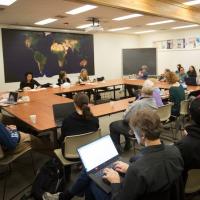
 Department Homepage
The College of Arts & Sciences
Department Homepage
The College of Arts & Sciences

